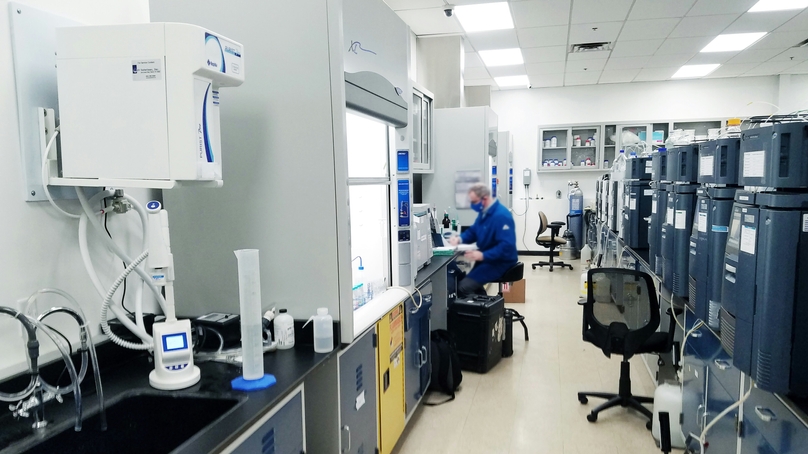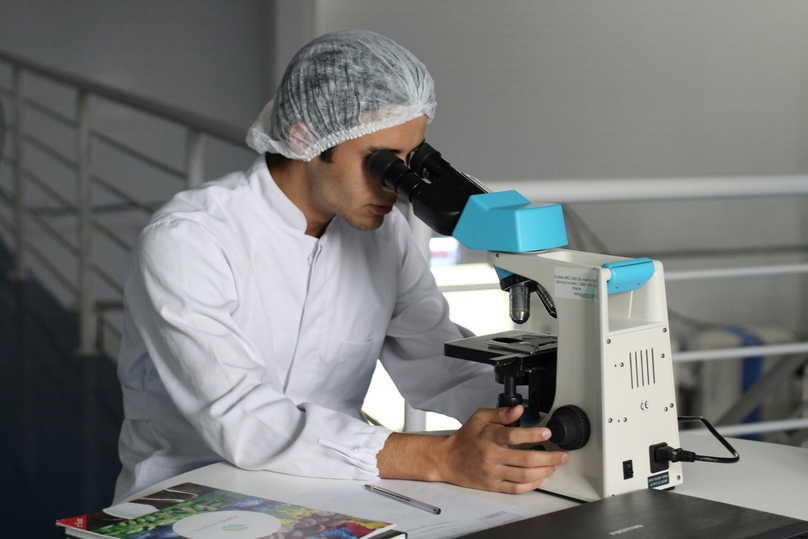Discover how AI agents are transforming Laboratory Information Management Systems (LIMS), revolutionizing scientific discovery and accelerating drug discovery. By harnessing the power of AI, laboratories can streamline workflows, optimize processes, and empower scientists to work smarter and faster. This article explores the functionalities, benefits, and implications of AI agents in LIMS.
AI Agents in LIMS Driving Innovation for Scientists to Work Smarter and Faster
In the world of laboratory information management systems (LIMS), AI agents are revolutionizing how scientists approach their research workflows. These AI-driven solutions empower researchers to automate routine tasks, streamline operations, and enhance decision-making processes. By integrating advanced AI capabilities into LIMS, scientists can leverage AI agents to accelerate scientific discovery and optimize data analysis.
AI LIMS systems are designed to support various aspects of research, from drug discovery to clinical trials. The integration of AI technologies allows for real-time data management, ensuring compliance with regulatory standards while reducing operational costs. Utilizing generative AI and machine learning, AI agents in LIMS can evolve to meet the changing needs of the laboratory environment.
With the adoption of AI agents, researchers can maximize their productivity by automating repetitive tasks and focusing on more complex scientific inquiries. This level of autonomy not only enhances the reliability of results but also transforms the research process, making it more efficient and effective.
AI agents excel in providing seamless integration within existing LIMS frameworks, enabling scientists to query large datasets effortlessly. By harnessing the power of AI, laboratories can achieve breakthrough results, pushing the boundaries of scientific literature and exploration.
As AI is transforming the life sciences, the future of research and development is being shaped by these intelligent systems. Discover how AI agents in LIMS are not just tools but partners in the quest for knowledge, driving innovation and optimizing workflows for scientists worldwide.
Understanding AI Agents in Scientific Research
Definition and Functionality of AI Agents
AI agents, powered by artificial intelligence and machine learning, are autonomous entities designed to perform specific tasks within a LIMS environment. Unlike traditional AI systems, AI agents excel in decision-making and adapting to real-time data, leveraging algorithms to automate complex processes. The functionality of an AI agent involves data analysis, predictive modeling, and optimization, all aimed at enhancing the research process. With the integration of AI, these agents can learn from datasets, evolve over time, and seamlessly integrate into existing workflows, providing researchers with enhanced autonomy and precision in their work.
The Role of Agentic AI in Life Sciences
Agentic AI plays a pivotal role in life sciences by enabling AI agents to act independently and proactively within a LIMS. These AI-driven tools leverage AI agents to accelerate scientific discovery by automating repetitive tasks, optimizing experimental designs, and providing real-time insights from scientific data. The adoption of agentic AI streamlines processes such as clinical trial management, data analysis, and compliance reporting, allowing researchers to focus on more strategic initiatives. The integration of AI technologies into LIMS is not just about automation; it's about leveraging AI agents to transform the way scientists conduct research and accelerate drug discovery.
Benefits of Using AI Agents in LIMS
Here's how AI agents are transforming LIMS, providing several key advantages:
Increased efficiency through automation of routine tasks.
Improved data analysis and real-time insights leading to better decision-making.
Accelerated scientific discovery by allowing researchers to focus on complex problem-solving.
This allows scientists to leverage AI agents for faster and more accurate results in their scientific research. The ability to leverage AI agents for predictive modeling enhances decision-making and optimizes research directions. Furthermore, the integration of AI solutions in LIMS ensures data reliability and compliance, critical in regulated environments. The deployment of AI in laboratory settings represents a significant advancement.
Integration of AI Agents in Laboratory Information Management Systems (LIMS)
How AI Agents Enhance LIMS Efficiency
AI agents are transforming the efficiency of Laboratory Information Management Systems by automating many tasks that previously required significant manual effort. This automation streamlines workflows, allowing lab personnel to focus on higher-level scientific research and analysis. The integration of AI solutions optimizes resource allocation, predicts potential bottlenecks, and ensures efficient use of lab equipment and materials. By leveraging machine learning algorithms, these AI agents can continuously learn from datasets, evolve their strategies, and adapt to changing lab conditions, improving throughput and productivity. The ability to leverage AI agents for real-time decision-making further enhances the efficiency of LIMS, ensuring seamless operation and minimizing errors in lab processes. The adoption of AI technologies in LIMS leads to faster turnaround times and improved data reliability.
Key Features of AI-Powered LIMS
AI-powered LIMS stand out from traditional systems due to several key features. These advancements provide powerful tools, notably:
Predictive modeling, driven by AI and machine learning, allows for forecasting issues and optimizing experimental designs.
Data analysis capabilities, enhanced by AI agents, facilitate the extraction of insights from complex data.
Natural language processing enables interaction with the LIMS using natural language, streamlining data processes. Furthermore, compliance management is improved with AI agents that automate data verification and track regulatory requirements. The integration of AI offers unprecedented power for scientific research and enhances autonomy within lab operations.
Best Practices for Implementing AI Agents in Labs
Implementing AI agents in laboratory settings requires careful planning and adherence to best practices to maximize their benefits. To ensure successful implementation, consider these key steps:
Define clear objectives and identify specific areas where AI agents can address existing challenges or improve workflows.
Ensure data quality and accessibility, as AI algorithms rely on accurate and comprehensive datasets for effective training.
Provide adequate training for lab personnel to effectively use and interact with AI-powered LIMS, fostering collaboration between humans and machines.
The integration of AI solutions should be seamless, minimizing disruption to existing processes and workflows. Regularly evaluate the performance of AI agents, refine algorithms based on feedback, and adapt strategies to changing needs in research and scientific data. By following these best practices, laboratories can leverage AI agents to drive innovation and transform scientific research, ensure data reliability and accelerate drug discovery.
Transforming Scientific Discovery with AI Technologies
Accelerating Clinical Trials through AI Integration
The integration of AI in clinical trial processes is transforming the speed and efficiency of bringing new treatments to market. AI-driven AI agents can automate various aspects of clinical trial management, from patient recruitment and data collection to analysis and reporting. By using machine learning algorithms, these AI agents can optimize trial designs, identify potential risks, and accelerate the process of drug approval. This not only reduces the time and cost associated with clinical trials but also enhances the reliability of results. The adoption of AI technologies in clinical trials enables research teams to streamline workflows, improve data analysis, and accelerate the drug discovery process. The ability to leverage AI is revolutionizing how clinical trials are conducted, ultimately benefiting patients by bringing life-saving treatments to them faster. The power of AI is clear.
Optimizing Research Processes with AI Systems
AI systems are transforming research processes across various scientific disciplines by providing tools that optimize workflows, improve data analysis, and facilitate scientific discovery. By automating repetitive tasks, such as literature reviews and data analysis, AI agents free up scientists' time to focus on more creative and strategic aspects of their work. These AI tools can also leverage machine learning algorithms to identify patterns and insights in large datasets that would be impossible for humans to detect manually. The integration of AI into research settings enables scientists to accelerate their research and transform scientific data into actionable knowledge more efficiently. This not only speeds up the pace of scientific research but also enhances the quality and impact of research outcomes. This is achieved by leveraging AI agents and the adoption of AI technologies.
Generative AI and Its Impact on Scientific Research
Generative AI is emerging as a game-changing technology in scientific research, offering capabilities to create new hypotheses, design experiments, and generate novel solutions to complex problems. Unlike traditional AI approaches, generative AI models can leverage AI agents to create entirely new content, such as molecular structures, drug candidates, and experimental protocols. This automation can significantly accelerate the drug discovery process and foster innovation in various fields of science. By enabling scientists to explore uncharted territories and generate novel ideas, generative AI is transforming the way scientific research is conducted. The use of large language model and advanced AI systems facilitate the development of cutting-edge AI solutions, making scientific progress faster and more impactful. The integration of AI enables research teams to explore a wider range of possibilities, ultimately leading to more rapid scientific discovery and better outcomes. The adoption of agentic AI will empower scientists to leverage the power of AI.
The Future of AI and Lab Management Systems
How AI Agents are Shaping the Future of Life Sciences
The future of life sciences is inextricably linked with the advancement and adoption of AI technologies, particularly AI agents. These autonomous entities are poised to revolutionize how research is conducted, offering unparalleled opportunities for automation and optimization of workflows. As AI agents excel in handling complex datasets and making real-time decision-making, they will increasingly be integrated into laboratory information management systems (LIMS), empowering scientists to focus on higher-level research and strategic thinking. The integration of AI promises to accelerate scientific discovery, transform drug discovery, and streamline processes, ultimately shape the future of medicine and healthcare. This paradigm shift requires careful planning and ethical considerations to ensure that the benefits of AI technologies are harnessed responsibly. The power of AI and machine learning will change all labs.
Challenges in AI Adoption for Scientific Research
Despite the immense potential of AI agents in scientific research, several challenges hinder their widespread adoption. Data analysis quality and accessibility are paramount; AI systems require robust and well-curated datasets to function effectively. Compliance concerns and regulatory hurdles in industries like pharmaceuticals can slow down the integration of AI. Seamless integration with existing LIMS and informatics infrastructure presents technical challenges that require careful planning and execution. Moreover, the need for AI expertise and training for lab personnel can be a barrier, as scientists must learn how to effectively leverage AI tools. Addressing these challenges is crucial for unlocking the full potential of AI agents and fostering a future where AI and humans collaborate seamlessly to advance scientific discovery. The adoption can streamline the workflows and create autonomy.
Vision for the Next Generation of AI Agents in Labs
The vision for the next generation of AI agents in labs is one where these autonomous entities are not just tools but proactive collaborators in the scientific research process. Future AI solutions will be able to leverage generative AI to propose novel hypotheses, design experiments, and even interpret complex scientific data with minimal human intervention. Predictive models will optimize resource allocation, anticipate potential bottlenecks, and ensure the reliability of research outcomes. Furthermore, natural language interfaces will empower scientists to interact with AI systems in a more intuitive and accessible manner, fostering greater autonomy and creativity. This vision of agentic AI promises to accelerate drug discovery and transform how science is conducted, making scientific research more efficient, innovative, and impactful. The AI agents excel at automating and optimizing. The AI-driven process will accelerate drug discovery. The traditional AI will evolve into advanced AI.















